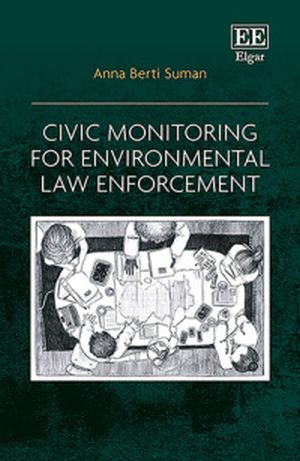
This book presents a thought-provoking inquiry demonstrating how civic environmental monitoring can support law enforcement. It provides an in-depth analysis of applicable legal frameworks and conventions such as the Aarhus Convention, with an enlightening discussion on the civic right to contribute environmental information.
Civic Monitoring for Environmental Law Enforcement discusses multi- and interdisciplinary research into how civil society uses monitoring techniques to gather evidence of environmental issues. The book argues that civic monitoring is a constructive approach for finding evidence of environmental wrongdoings and for leveraging this evidence in different institutional fora, including judicial proceedings and official reporting for environmental protection agencies. It also reveals the challenges and implications associated with a greater reliance on civic monitoring practices by institutions and society at large.
Adopting original methodological approaches to drive inspiration for further research, this book is an invaluable resource for students and scholars of environmental governance and regulation, environmental law, politics and policy, and science and technology studies. It is also beneficial to civil society actors, civic initiatives, legal practitioners, and policymakers working in institutions engaged in the application of environmental law.